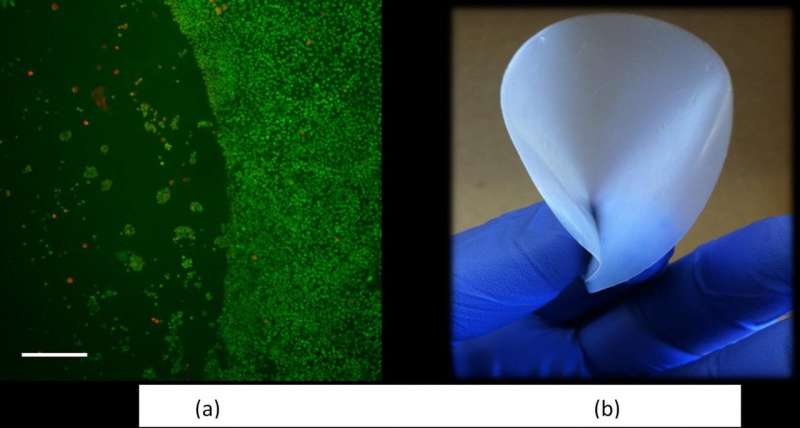Effective material developed to prevent post-surgical adhesion

In a paper published in Technology, a group of researchers has investigated a novel polyelectrolyte complex (PEC) that provides a barrier to prevent adhesions in post-operative complications. This could prevent the need for a second surgery to remove the adhesions.
Adhesions are fibrous bridges that form between tissues and organs. They can occur in spinal, intestinal and peritoneal (abdominal cavity) regions of the body as a result of surgery, injury, inflammation or infection. Adhesions usually occur in abdominal, pericardial and epidural spaces. It is estimated that 303,836 hospitalization cases, 800,000 days of in-patient care and $1.33 billion in expenditures can be attributed to adhesion formation. Adhesion causes discomfort, extreme pain, reduced mobility, difficulty breathing and infertility. The success rates of available anti-adhesive barriers are still low, and there is a need for development of more effective bio-materials that can significantly reduce adhesions.
A team of researchers from the Rutgers University, New Jersey, has demonstrated a novel biomaterial film that is strong, flexible, and provides a physical barrier to prevent the joining of surfaces that should not stick together. The electrostatic interactions of the substrate cells with the film also prevent adhesions from forming.
The method works by taking advantage of the inherent properties of at least two oppositely charged polymers. "Polyelectrolyte complexes (PECs) primarily consist of polymers with negatively charged functional groups such as carboxylate and sulfate, and have demonstrated an inhibitory effect on adhesions of macrophages, lymphocytes, platelets and fibroblasts," says Professor Noshir Langrana, Ph.D., of Rutgers University and principal investigator on the paper.
Current technologies have issues such as brittleness and an inability to prevent adhesions in the presence of blood. The cellular anti-adhesive technology derives from a natural, nontoxic material complex that biodegrades in one to two weeks, and is flexible and reasonably strong. This film would prevent adhesions by providing a physical barrier to stop the surfaces that should not stick together from joining.
More information: Shiv A. Mistry et al, In vitro investigation of chitosan-polygalacturonic acid polyelectrolyte complex (PEC) biomaterials as anti-adhesive substrates for preventing adhesion formation, TECHNOLOGY (2018). DOI: 10.1142/S2339547818500073
Provided by World Scientific Publishing


















